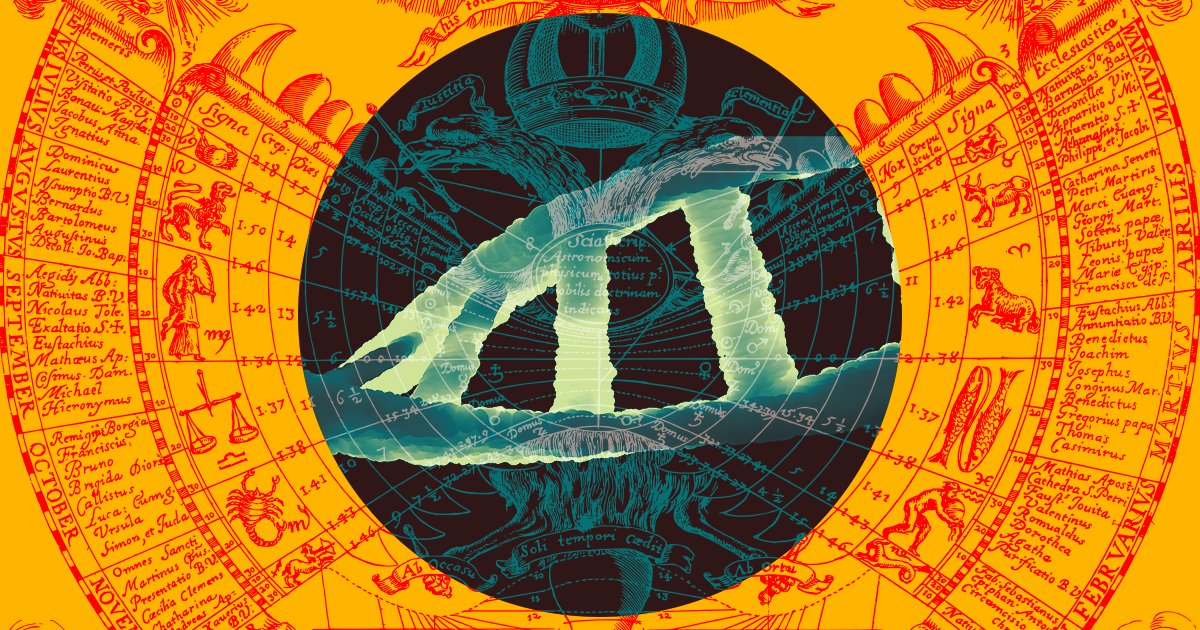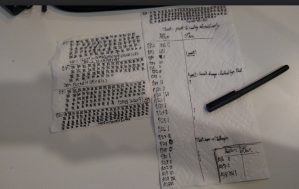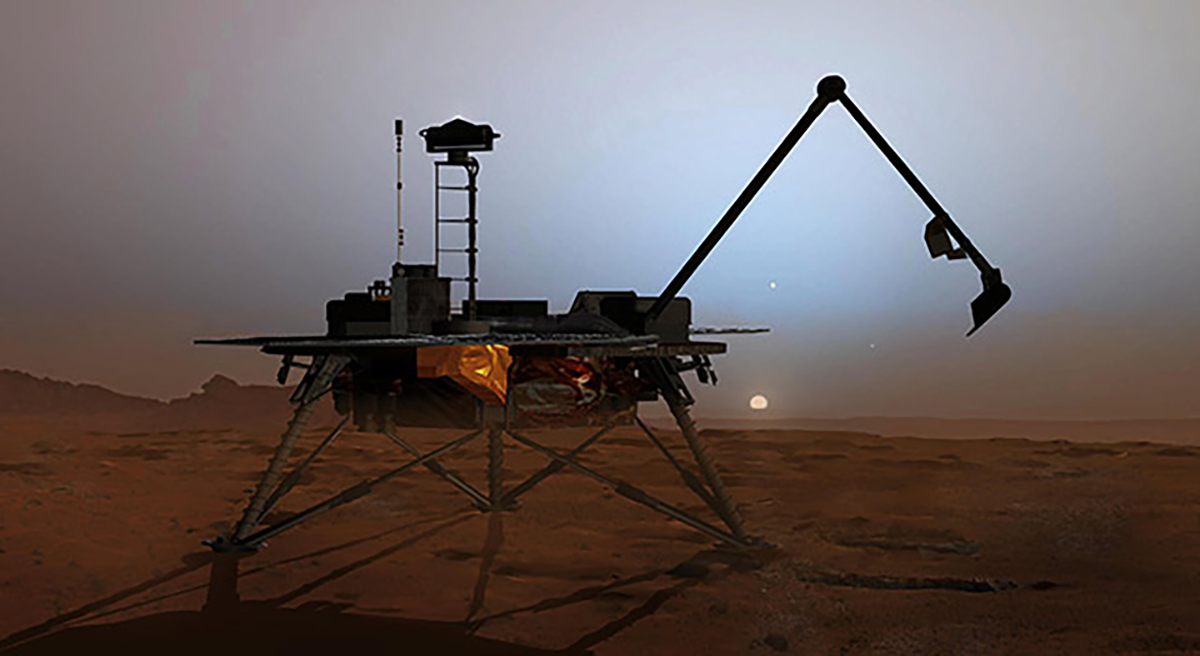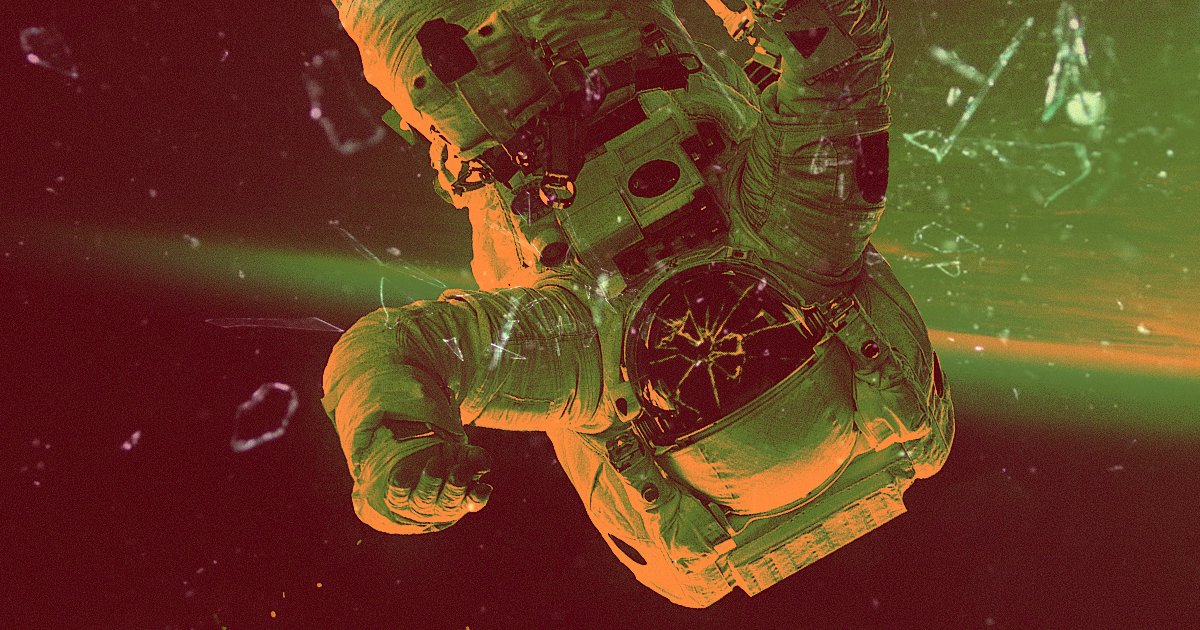
ANOTHER YEAR in the books, and with it, we’re putting the lid on a hell of a volume around here — figuratively and literally. As of this writing in early December, a total of (give or take a few) 3,204 stories have been published to Futurism, The Byte, and Neoscope in 2019. We also broke more than a few of our own readership records along the way. But sometimes, as it happens in publishing, your favorite stories are the ones that didn’t garner the attention of the traffic behemoths they were next to, but were true labors of love no less. We figured we’d give them some shine once more, in case you missed ’em the first time.
Without further ado, please enjoy this compilation of utter self-regard: The Futurism Team’s Favorite Stories of 2019. We obviously did.
In Which Those DNA Testing Kits Fail a Sniff Test

DATE: November 20, 2019
THE HEADLINE: “Like Horoscope Readings!”: The Scammy World of DNA Test Startups
THE STORY: The growing popularity of DNA testing kits like Ancestry, 23andMe gave rise to a sketchy new sector of the genomics industry, with companies like Genomelink, GenePlaza, Soccer Genomics, and GenoPalate advertising DNA analysis for athletic performance, mental and physical illnesses, and personality traits. Customers who paid for the tests as well as academic geneticists agree: They’re often a crock.
MONEY QUOTE: “I know that many of the DNA traits may not be true,” Genomelink parent company CEO Tomohiro Takano said in an interview with Futurism.
WHY WE LOVED IT: Look, anything that gets your site a vague letter vaguely threatening legal action from a lawyer looking to scare us into softening the story (but, notably, disputing none of its facts) means you’ve pissed off someone in a position of power. Which this story did! Of course, that was by no means the intent: Staff reporter Dan Robitzski only wanted to know how those who were shelling out their hard-earned cash for these tests felt about what they were getting back, and then, cross-checking it by scientists without a financial stake in the truth of the matter. And the truth? As technology and science progresses, so will the sector for advances in what’s available to your average consumer, and with it, the amount of cash-grabbers willing to sell hinky science to vulnerable customers who seek genuine answers to their very real problems.
That Time We Kinda Maybe Thwarted Pepsi’s Plans to Take Over Space

DATE: April 13, 2019
THE HEADLINE: Pepsi Plans to Project a Giant Ad in the Night Sky Using Cubesats
THE STORY: PepsiCo contracted a Russian startup to explore the possibility of launching an “orbital billboard” made up of mini-satellites to display an advertising campaign for an energy drink in the night sky, visible from the ground — a campaign that somehow, apparently, had to do with prejudice against a wildly persecuted minority: Gamers.
FLACK RESPONSE OF YEAR: Russian PepsiCo spokesperson Olga Mangova confirmed to Futurism that the collaboration is real. “We believe in StartRocket potential,” she wrote in an email. “Orbital billboards are the revolution on the market of communications.”
WHY WE LOVED IT: Jesus, like: What isn’t there to love? For one thing, if you’re PepsiCo, Futurism’s news editor Jon Christian. After the story ran, and in the wake of a plethora of negative press, the plans for the cubesat ad were scrapped. Pepsi trotted out the line that it was a ‘one-time test’ and tried to retcon their narrative on this, of course, blaming it on their Russian counterparts going rogue (and making the press line above that much funnier). For another: Uh, global soft drink conglomerate plans James Bond-villain-esque advertising campaign for energy drink to target persecuted gamer crowd (?!?!) by using mini-satellites? Right. Our colleagues across the industry took notice on this one as well: In the ensuing press mess, we picked up some love from The Atlantic (who responded with a great piece on Pepsi’s obsession with space), Gizmodo, Slate, Discover Magazine, Space.com, and BoingBoing (whose URL choice summed up the public response to this story best). Futurism: You got the right one, baby.
That Time We Took on The Tabloids (and Their Stupid Space Rocks Stories)

DATE: October 11, 2019
THE HEADLINE: This Awful Tabloid Predicts a Killer Asteroid Almost Every Day
THE STORY: A world already on edge, and a newspaper using fear of death from above to get bullshit clicks from it.
THE NINTH ANNUAL ‘ALL WORK AND NO ASTEROID MAKES DAN A DULL BOY’ DATA JOURNALISM AWARD GOES TO staff reporter Dan Robitzski’s old-fashioned, pen-and-paper hand-tabulation of British tabloid The Daily Express‘ bullshit asteroid stories:

WHY WE LOVED IT: Besides the fact that Dan went (see above) full-red string on this one? It’s a demonstration of something that looks like science journalism to the untrained eye — but that’s really just a cudgel to incite panic and fear. By showing what it looks like when it’s bad, hopefully, we demonstrate what we like to think of as a core tenet of the mission of Futurism: Helping readers draw the line, as boldly as possible, between fraudulent science news and the Real McCoy.
In Which the Office Spent Two Weeks Overhearing People’s Skulls Get Sawed Open on Facebook

THE DATE: September 25, 2019
THE HEADLINE: Meet the Doctor Who’s Livestreaming Human Autopsies
THE STORY: Exactly what it sounds like: Someone on Facebook Live giving people access to something they never knew they needed (or apparently, wanted): Actual, live human autopsies. Meet autopsy pathologist Ben Margolis, creator of Autopsy.online.
ACTUAL FIRST LINE OF THIS THING: A bloody online video shows a doctor slicing into a human cadaver’s scalp, peeling back the skin, cutting open the skull with a brutally whining saw, and removing its brain.
WHY WE LOVED IT: Here’s what we didn’t love: Listening to the sound of bone cutting through a skull as we’re trying to put down a Sweetgreen salad for lunch over the better part of two weeks. But this kind, warm profile of a passionate person trying to use recent advances in communications technologies — while navigating the ethical questions surrounding something like this — is the kind of thing you should expect to see more and more of in the coming years: The weird, odd, sometimes macabre, but almost always interesting ways people will take advantage of the increasing speeds we can move data, images, and sound.
That Time We Shut Down the Site

THE DATE: September 20, 2019
THE HEADLINE: To Our Readers: Why Futurism Isn’t Publishing Today
THE STORY: There wasn’t one. Because we didn’t go to work.
A FAIRLY CLEAR SUMMATION OF WHY WE DO THIS: “Our value of science is closely related with the same reasons we’re journalists: A belief in science is a belief in the truth, above all.”
WHY WE LOVED IT: Futurism doesn’t often editorialize, or take stands on issues. But the Global Climate Strike was too big to ignore. Supporting climate science (or science, generally) isn’t a political advocacy, just like supporting journalism wouldn’t be an advocacy (unless you’re an advocate for something other than the truth and accountability). We made an executive call to shut down the site the night before, and the next day, a bunch of us went downtown, and stood alongside throngs of New Yorkers of all backgrounds — and people all over the world — to stand for nothing less and nothing more than the science that our future depends on.
That Time We Tracked Down the Guy Who Comes Up With NASA Robotic Arms for Mars

THE DATE: April 2, 2019
THE HEADLINE: Here’s How NASA Dreams up Robotic Arms for Landers
THE STORY: Al Tadros is the VP of Space Infrastructure and Civil Space at SSL, which means his job is to manage the company’s relationship with NASA. And his company? They help invent the most sophisticated robot arms ever to leave Earth. We wanted to know how that works. So: We asked.
THE “AND YOU CAN’T EVEN PUT AN IKEA TABLE TOGETHER” MONEY QUOTE (OF THE DECADE): “One of the most exciting aspects of space robotics right now is the potential to assemble spacecraft, space telescopes, and other platforms in space.”
WHY WE LOVED IT: Sometimes, we’re just straight-up curious about things — maybe not things that anybody necessarily needs the answer to at this moment, but questions that we have no less. The fun of being a journalist is the license and reason to call the people with those answers up and ask them. For Futurism’s photo editor/staff writer Victor Tangermann, coming up with this one was as simple as that.
In Which We Learned About the Point Where Picasso and the Singularity Meet in the Middle

THE DATE: November 22, 2019
THE HEADLINE: Someday, Robot Artists May Have to Explain Their Creations to Us
THE STORY: Arthur Miller, a physicist who probably gets far fewer A View From the Bremsstrahlung jokes than he should, wrote a book about how robots are demonstrating creative thinking, “The Artist in the Machine.” We interviewed him.
THE MONEY-QUOTE: “It’s wrong to assess the work of an AI on whether it can be distinguished from the work of a human. Because what’s the point? You want AI to create works of art that you can’t even imagine right now. To define what is art is impossible. Picasso’s artworks were considered a joke at the time he did them.”
WHY WE LOVED IT: Because science/technology journalism doesn’t intersect with the arts nearly enough, and the reality of these two things is that there’s a little bit of science in all the world’s art, and a little bit of art in all the world’s science. The people who understand this vital crosshatch in the fabric of both fields — and who seek to enlighten the world’s understanding of it — will, if nothing else, becoming increasingly vital figures in the new decade to those pioneering in their respective fields (if not, in some cases, as important as the artists, scientists, and technologists of the world, themselves). And if nothing else, staff writer Dan Robitzski’s fascinating conversation with Miller demonstrates that.
That Time Kristin Somehow Explained Quantum Darwinism Tests In Less Than 500 Words

THE DATE: July 24, 2019
THE HEADLINE: Mind-Bending “Quantum Darwinism” Theory Passes Experimental Tests
THE STORY: Researchers’ theories and work on “Quantum Darwinism” have so far proven out to be nothing but confirmation of “Quantum Darwinism” being, like, a real thing.
NO BUT SERIOUSLY WTF IS “QUANTUM DARWINISM” AND WHY ARE WE PUTTING IT IN SCARE QUOTES? It involves matter existing in two states at once, but only depending on the size of the matter, and what happens when that matter is observed, and how that matter decides t— you know what? No. Not even gonna try. Just read the story. Kristin did it better.
WHY WE LOVED IT: One of our main goals in publishing Futurism everyday is to help readers who might not be mired in scientific terminology/those of us who got anything less than a perfect 5 score on the AP Physics test somehow understand what any of this means, how it will affect the world, and what’s truly exciting about it. Our staff writer Kristin Houser has become a first-ballot Hall-of-Famer at doing this kind of thing — and her explanation of “Quantum Darwinism” is the sharpest of our sharpshooter news-writers putting on an absolute clinic in what she does best. How else do you think her stories end up in the hands of Stephen Colbert?
That Time Things Got, Uh, Kinda Dark

THE DATE: July 26, 2019
THE HEADLINE: 7 Ways to Die in the Future
THE STORY: Of all the exciting, interesting, fascinating innovations and breakthroughs and technology the future might bring about, bet you haven’t thought about all the new ways people are gonna die! Oh, and they will die. All of them. Some of them like this!
INEVITABLE NERVE WE HIT WITH SOMEONE, SOMEWHERE: “Perhaps in the future after reaching the singularity, your life-size sex doll decides it’s ready to taste human flesh, or maybe weaponized sex robots start trying to seduce us before going in for the kill. Either way, this one gives a whole new meaning to ‘going out with a bang.'”
WHY WE LOVED IT: In the event you’re wondering, this is Futurism’s content director speaking, and he can’t remember how the hell we ended up assigning this story, or why our Director of Strategic Operations and future death doula Sarah Marquart ended up writing this, but we did learn a thing or two about her, uh, vivid imagination [see above]. Also, we could probably afford to do more servicey stuff like this, you know? If we prevented even one guy from [earmuffs, kids!] dying after sticking his dick into an overshaped toaster one day, then all of this, Futurism.com’s entire legacy, it was all worth it.
That Time Elon Musk Summed Up the Last Decade, and Probably the Next One, Too

THE DATE: December 9th, 2019
THE HEADLINE: Elon Musk Drives Cybertruck to Restaurant, Hits Traffic Cone
THE STORY: The most famous of the world’s Nu-Industrialists, fresh off of winning his “Pedo Guy” defamation case, took his brand new truck out for a spin in Malibu, at Nobu, hung out with actor Edward Norton and his pop star girlfriend Grimes, before pulling it out of the lot, running over a traffic pylon, and making a sketchy-at-best (and possibly illegal) left turn.
THE FOOTAGE:
Who's driving @ElonMusk or the Auto-Pilot?$TSLA pic.twitter.com/xvmyHPG8Ol
— GuruLeaks (@Guruleaks1) December 8, 2019
WHY WE LOVED IT? Look — this is one of probably fourteen or fifteen things we posted to the site that day. There was no investigative reporting, just a quick summation of a thing that happened. And why post it? On its surface, it’s a seemingly innocuous item about Elon Musk doing something a decent slice of the world’s halfway-decent drivers have done more than a few times. But it’s also a beautiful metaphor, a snapshot of a decade in technology and innovation and industrialism and pop culture summed up so darkly, and so hilariously: The car is barely street legal (it doesn’t have the side-view mirrors currently mandated by California law). Elon is a bona-fide celebrity, hanging out with other bona-fide celebrities. What he’s done for renewable energy and space travel is nothing short of incredible. The fact that someone like him is a celebrity is incredible. And it’s also incredible that we just watch him be a hapless, arrogant, absurd, brash scofflaw. Are we the truck? Are we the traffic pylon? Are we Grimes, in the back seat, looking like we were photoshopped into reality? Are we the valets at Nobu? Or are we both the website covering this exploit, literally and figuratively? Are we all of it and none of it at once? And how should we feel? Annoyed? Bemused? Thrilled by way of vicariousness? Science and technology journalism involves a lot of cold machinery, calculations, abstract ideas, and atomic, unseeable matter. It’s people like Elon, and moments like these, where the innovation, the innovator, and those around it come to an apex — it’s where, figuratively and literally, the rubber hits the road. These are the dumbest and the most thrilling things we cover, often. They’re the human elements. And they have been — and will continue to be — the story of the future, the people shaping it, and way it affects you: Some billionaire asshole helping us dream bigger cutting you off with an illegal left turn after running over a traffic pylon like a Shih Tzu’s squeak toy falling underfoot. Why did we love it? The better question is: How can we not?